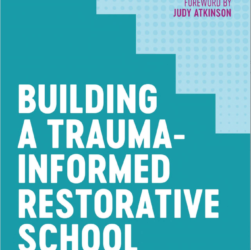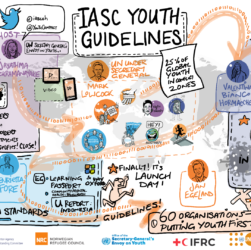Promoting a sense of belonging is essential to building strong relationships in education. When students feel like they are part of a community, they are more likely to be engaged, motivated, and successful in their learning.


Promoting a sense of belonging is essential to building strong relationships in education. When students feel like they are part of a community, they are more likely to be engaged, motivated, and successful in their learning.

China urged the U.S. to ratify the United Nations (UN) Convention on the Rights of the Child (CRC) as soon as possible and take practical actions to protect children’s rights, Foreign Ministry spokesperson Mao Ning said on Thursday.

The COVID-19 pandemic has significantly impacted the mental health and wellbeing of individuals worldwide, including students and educators in schools. The pandemic has disrupted daily routines, caused social isolation, and increased stress and anxiety levels for many people. In the wake of the pandemic, there is an urgent need for mental health support in schools to help students and educators cope with the challenges and uncertainties of the post-COVID world.

“Building a Trauma-Informed Restorative School” by Joe Brummer is a comprehensive guidebook that provides educators with the skills and approaches needed to create a trauma-informed and restorative school culture. The book is organised into six sections, each covering a different aspect of building a trauma-informed and restorative school.

‘All children should learn together, wherever possible, regardless of any difficulties or differences they may have.’ These are the principles adopted at the UNESCO World Conference on Special Needs Education held in Salamanca, Spain.

Bullying is a serious issue affecting many students in schools worldwide. In recent years, there has been an increasing focus on using online anonymous reporting tools to address bullying and create a safe and inclusive learning environment. This post will discuss the use of online anonymous reporting tools for anti-bullying and their potential benefits and limitations.

Education is more than just the transfer of knowledge from teacher to student. It is a complex and multifaceted process that involves the development of strong relationships between teachers, students, and the wider community. These relationships are the foundation upon which successful education is built, and they play a critical role in shaping students’ academic, social, and emotional outcomes.

The United Nations Charter for the Rights of the Child is a significant achievement in the global effort to protect and promote children’s rights. Adopted by the United Nations General Assembly on November 20, 1989, the Charter is a legally binding agreement that sets out the fundamental rights of every child, regardless of race, gender, ethnicity, or social status.

The Inter-Agency Standing Committee (IASC) Guidelines are principles and standards that provide a framework for coordinating humanitarian assistance in complex emergencies. The IASC is a unique forum of the United Nations (UN) and non-UN humanitarian agencies established in 1992 to improve the effectiveness of humanitarian response in crises. The Guidelines were first published in 2005 and have been updated several times.

The Core Humanitarian Standards (CHS) is a set of principles and guidelines developed by the humanitarian sector to ensure that humanitarian assistance is provided consistently, accountable, and effectively. The CHS was developed by the Sphere Project, a collaboration of humanitarian agencies and experts, and was launched in 2014. The CHS is based on the belief that people affected by crises have the right to life with dignity and receive assistance tailored to their needs.